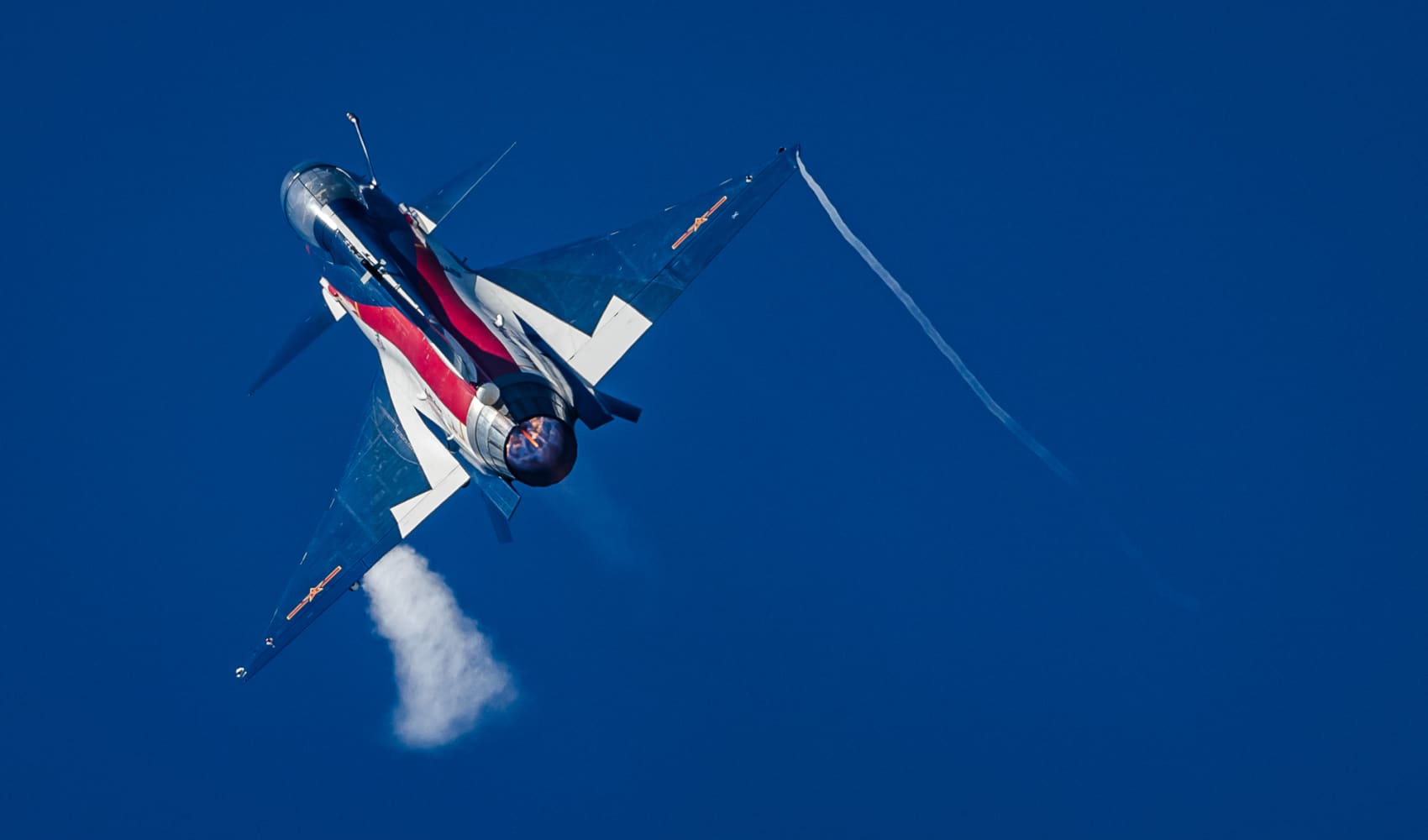Pakistan's Balancing Act: China and US as Key Allies
Navigating Geopolitics: Pakistan Balances China and U.S. Ties
Introduction: A Tightrope Walk in International Relations
In the complex world of international relations, countries often find themselves walking a tightrope, balancing competing interests and alliances. Pakistan is no exception. Recently, Pakistan's Federal Minister for Finance & Revenue, Muhammad Aurangzeb, articulated the nation's delicate position, stating that both China and the United States are "critical and strategic allies." But what does this mean, and how does Pakistan navigate the intricate dance of maintaining strong relationships with these two global superpowers? Let's dive in.
Understanding Pakistan's Strategic Significance
Pakistan's geographical location makes it a crucial player in the region. Bordering both China and countries with significant U.S. interests, Pakistan finds itself at a geopolitical crossroads. This position necessitates a balanced foreign policy that prioritizes cooperation and mutual benefit with all its partners. Think of it like a hub on a wheel, with spokes connecting it to various key players.
The "Longstanding Relationship" with China
Pakistan and China share a deep-rooted and historically strong relationship. This bond is often described as "all-weather," indicating its resilience through changing global circumstances. The China-Pakistan Economic Corridor (CPEC), a massive infrastructure project, is a testament to this close partnership. But what exactly makes this relationship so enduring?
CPEC: A Game Changer?
CPEC isn't just about roads and bridges; it's about economic transformation. It promises to boost Pakistan's infrastructure, create jobs, and enhance connectivity. However, it also comes with its own set of challenges, including concerns about debt sustainability and environmental impact. It's like a double-edged sword, offering great potential but requiring careful management.
The Importance of the U.S. Relationship
While Pakistan's relationship with China is deeply entrenched, its ties with the United States are equally significant. The U.S. has historically been a major provider of economic and military aid to Pakistan. Maintaining a strong relationship with the U.S. is crucial for Pakistan's economic stability and security.
Addressing the Trade Imbalance: A Key Priority
According to Muhammad Aurangzeb, the weighted average tariff on U.S. exports to Pakistan is around 7%, while U.S.' imports from Pakistan is around 10%. This trade gap is a concern for Pakistan. The country is actively seeking to engage with the U.S. to "close" this trade gap. Imagine trying to fill a bucket with a hole in the bottom; it's essential to fix the hole to make progress.
Navigating Trade Tensions: A Global Challenge
Pakistan isn't alone in feeling the pressure of trade tensions between major global powers. Countries worldwide are grappling with tariffs and trade disputes. This highlights the interconnectedness of the global economy and the importance of multilateral cooperation. It’s like a spider web – tug on one thread, and the whole thing vibrates.
The Trump-Era Tariffs: A Temporary Setback?
The previous U.S. administration, under President Donald Trump, imposed a 29% duty on all exports from Pakistan to the U.S. on April 2. While this duty has since been lowered to 10% as part of a 90-day pause, it underscores the volatility of international trade relations. This serves as a reminder that relationships can shift and change based on political and economic climates.
"Not Wanting to Choose": A Delicate Balancing Act
Pakistan's finance minister explicitly stated that the country does not want to choose between China and the U.S. This is a testament to Pakistan's commitment to maintaining a balanced foreign policy. It's like having two close friends who don't always see eye to eye; you value both relationships and strive to keep the peace.
The Benefits of a Multi-Aligned Foreign Policy
By maintaining strong relationships with both China and the U.S., Pakistan can leverage the benefits of both partnerships. This includes access to investment, trade opportunities, and security cooperation. Diversifying partnerships can also reduce Pakistan's reliance on any single country, enhancing its strategic autonomy.
Challenges and Opportunities in U.S.-Pakistan Relations
The relationship between the U.S. and Pakistan has seen periods of both close cooperation and significant strain. Overcoming past challenges and building trust is crucial for strengthening this partnership. Areas for potential cooperation include counter-terrorism, regional stability, and economic development.
Economic Cooperation: A Pathway Forward
Focusing on economic cooperation can be a win-win for both the U.S. and Pakistan. By addressing the trade imbalance and promoting investment, both countries can benefit from increased trade and economic growth. Consider it a collaborative project, where both parties contribute their strengths and reap the rewards.
The Future of Pakistan's Foreign Policy
Pakistan's foreign policy will likely continue to prioritize maintaining strong relationships with both China and the U.S., as well as fostering closer ties with other regional and global partners. This approach reflects a pragmatic assessment of Pakistan's strategic interests and its desire to play a constructive role in the international arena.
Adapting to a Changing World Order
The global landscape is constantly evolving, and Pakistan must adapt its foreign policy accordingly. This includes navigating the rise of new economic powers, addressing climate change, and promoting regional stability. It's like sailing a ship; you need to adjust your sails to the changing winds.
Conclusion: Pakistan's Strategic Balancing Act
Pakistan's approach to foreign policy, emphasizing strong relationships with both China and the U.S., reflects a commitment to balancing competing interests and maximizing strategic advantages. This balancing act requires careful diplomacy, a focus on mutual benefit, and a willingness to adapt to a changing global landscape. Pakistan's ability to navigate these complexities will be crucial for its future prosperity and security. The future holds both challenges and opportunities for Pakistan as it seeks to maintain its position as a key player in the region.
Frequently Asked Questions
Q1: Why is Pakistan considered a strategically important country?
Pakistan's geographical location, bordering China and countries with U.S. interests, makes it a crucial player in regional geopolitics and trade routes. It also has a large population and significant military capabilities.
Q2: What is the China-Pakistan Economic Corridor (CPEC)?
CPEC is a large-scale infrastructure project that aims to connect China to Pakistan's Gwadar Port, boosting Pakistan's infrastructure, creating jobs, and enhancing connectivity. It's a key component of China's Belt and Road Initiative.
Q3: How does Pakistan plan to address the trade gap with the U.S.?
Pakistan is looking to engage with the U.S. to negotiate more favorable trade terms, promote investment, and increase exports to the U.S. market. This involves addressing tariffs and other trade barriers.
Q4: What are the main challenges in the U.S.-Pakistan relationship?
The U.S.-Pakistan relationship has faced challenges related to security concerns, regional stability, and differing perspectives on counter-terrorism efforts. Building trust and addressing these concerns is crucial for strengthening the partnership.
Q5: How does Pakistan's relationship with China impact its relationship with the U.S.?
Pakistan strives to maintain a balanced relationship with both China and the U.S. While its strong ties with China may sometimes raise concerns in the U.S., Pakistan emphasizes that it does not want to choose between the two countries and seeks to cooperate with both.

